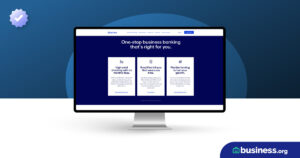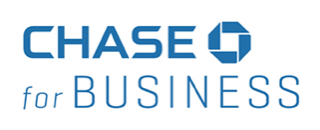💸 See if your business qualifies for a tax credit worth up to $26k per employee. 📞 Call Now: 855-979-9597
How to Apply for a Business Credit Card
We are committed to sharing unbiased reviews. Some of the links on our site are from our partners who compensate us. Read our editorial guidelines and advertising disclosure.
Interested in getting a credit card for your business? Then you need to submit a card application and get approved―just like you would with a personal credit card.
That said, personal credit card applications and business credit card applications work just a little differently, so you should make sure you understand the business credit card application process before you get started.
In this guide, we’ll explain how to apply for a business credit card step-by-step. So it doesn’t matter whether you’re hoping to get a basic card to help with cash flow or a rewards card that gives you cash back on purchases―we’ll help you get that new card in your wallet.
How to apply for a small-business credit card
1. Review your qualifications
Before you even start looking at your credit card options, you need to have a clear picture of your qualifications―including both your personal qualifications and business qualifications.
So this is a good time to check your personal credit score and review your credit history, for example. You may also want to crunch some numbers to figure out your business revenue and personal income. That way, you’ll know how a potential card issuer will see you.
See, credit card issuers want to make sure you can be trusted with a small-business card (like that you’ll repay your credit card balance). And since they’re not psychic, credit card companies look at your qualifications to determine your creditworthiness―in other words, to figure out whether or not you should get approved for a new card.
Each credit card company will have its own standards for what factors it considers and what’s considered good enough. But generally speaking, you should expect a card issuer to look at factors like these:
- Your personal credit score
- Your business credit score
- Annual business revenue
- Annual personal income
- Your business’s age
- Your business’s industry
- The number of employees you have
As you can guess, a better credit score means you’re more likely to get approved. The same is true of things like your business’s revenue and your personal income. Likewise, older, more established businesses will have an easier time getting approved than younger businesses will.
But whatever your situation, be honest with yourself about your qualifications. Because in the next step, you’ll be using this information to figure out which business credit card you should apply for.
Since credit card applications can take time and affect your credit score, you’re better off knowing your qualifications before you start card shopping―much less submitting card applications.
By signing up I agree to the Terms of Use.
2. Choose the right business credit card
Once you know your qualifications, you can start looking at your small-business credit card options.
Of course, you have dozens of cards to choose from. So to narrow down your choices, we suggest looking at a few factors.
Qualifications
Like we already said, you should look for a business credit card that roughly matches your personal and business qualifications. This will improve your chances of getting approved.
Unfortunately, most business card issuers don’t simply list their credit card requirements in black and white. But you can still usually get a pretty good idea of how qualified you need to be to get a card.
For example, a credit card company may label its cards as requiring certain credit tiers (like excellent or fair) even if it doesn’t publish specific credit score requirements. (Capital One does this.) Or you can generally assume that a flagship card with lots of rewards will require higher business qualifications than a secured card designed for building credit history.
And when in doubt, you can always get in touch with the credit card company you’re interested in to ask about more specific requirements.
Business needs
Of course, you don’t just want any credit card you can qualify for―you want a small-business credit card that will actually help your business. So think about what kinds of specific needs (and wants) you have.
If you just want a business credit card for the extra cash flow, you may not be able to think of much. But sometimes businesses have specific circumstances that can really narrow down card choices.
For example, if you have existing credit card debt that you want to refinance at a lower interest rate, you’ll probably want to focus on business credit cards for balance transfer (cards that charge low fees and rates on balance transfers). Or if you know you’ll need more than the occasional cash advance, you may want to look for cards that have low cash advance fees.
You can also think about a desired credit limit, whether you’ll use the card internationally (in which case you should look for a card with no foreign transaction fees), and how many employee cards you’ll need.
Rewards
And while we’re on the topic of how your business spends, let’s talk about rewards. Many (but not all) business credit cards come with some kind of rewards program.
Like a personal credit card, a business credit card can earn incentives―like cash back, rewards points, or miles―on qualifying purchases. And most business cards have nice welcome offers (like bonus points or cash back) when you spend a certain amount in the first few months with your new card.
Rewards programs can vary a lot from card to card, so you’ll want to find one that fits your business’s spending patterns. If, for instance, you tend to buy lots of office supplies, you should find a card that offers a higher rewards rate for eligible purchases at office supply stores. Or if you don’t want to ever worry about how you spend, you might want to focus on flat-rate rewards cards.
Likewise, think about the type of rewards you want. Cash rewards work well for all sorts of businesses. But if your business requires much travel, a card that earns miles may make more sense. Or maybe you’ll prefer the flexibility of points rewards, which can be redeemed for gift cards, statement credit, merchandise, and more.
Pricing and terms
Finally, as you’re narrowing down your credit card choices, you should pay close attention to pricing and terms on your potential card options. Because depending on how you use your credit card, fees and interest can really add up.
We suggest reading through a card’s terms and conditions in full. But here are some card costs you’ll definitely want to look for:
- Annual fee
- APR (annual percentage rate)
- Cash advance fee
- Balance transfer fee
- Foreign transaction fee
- Employee card fee
- Late payment fee
Sure, there’s a chance you’ll never end up paying some of these costs (if you always pay your statement balance in full and on time, for example). But it’s better to know exactly what costs you might have than to get blindsided by unexpected credit card charges later.
3. Submit your credit card application
After looking at your qualifications, needs, rewards preferences, and credit card costs, you should have a good idea of what small-business credit card you want. That means you’re ready to fill out and submit your credit card application.
Fortunately, this step should feel pretty easy. For the most part, you’re just filling in a form with basic information about yourself and your business:
- Your name
- Your business’s legal name
- Your personal contact information
- Your business address
- Your SSN (social security number)
- Your business’s EIN (employer identification number)
Stuff you probably know off the top of your head, in other words.
Of course, you will encounter some questions that you may need to do some math to answer―like how many employees you have, your personal income, and your business’s revenue. (Of course, if you followed our advice in step one, you’ll have all this info handy already.)
Once you've filled out the form, you simply submit it and wait for a response. Depending on the credit card company, you may get approved in as little as 30 seconds―or it could take a day or two to get an answer.
If you want to hear back about your application ASAP, you should apply for an instant approval credit card.
With any luck (and thanks to the groundwork you did earlier), you’ll get approved for the credit card you wanted.
4. Use your new card responsibly
As soon as you get approved for your new credit card, you should review the terms and conditions. Make sure you understand things like your card’s credit limit, interest rate, and rewards program structure.
Then, start making purchases with your new card. As a financial best practice, you’ll want to keep your business expenses separate from your personal expenses, so make sure you pull out the right card when you’re at the register.
And of course, make sure you pay your credit card bill on time.
As you responsibly use your new business credit card, you should start improving your credit score (that includes your personal credit score and your business credit score) and building a positive credit history.
So in the future, you’ll be able to qualify and apply for the very best business credit cards―and you’ll start this credit card application process all over again.
Recommended business credit cards
Ready to find the right credit card for your business? Here are our five favorite credit cards for business owners.
Best business credit cards
Data effective 10/18/22. At publishing time, amounts, rates, and requirements are current but are subject to change. Offers may not be available in all areas.
For more information about these cards―and for even more card recommendations―check out our guide to the best small-business credit cards.
The takeaway
Applying for a business credit card doesn’t have to be a painful, drawn-out process. Still, you should make sure you understand your qualifications and find an appropriate credit card before you submit your application and start using your new card.
As you follow the steps outlined above, you’ll improve your chances of getting approved for a business card―and one that actually works well for your business, no less.
Good luck with your credit card application!
Interested in a lower-interest alternative to business credit cards? Learn more about business lines of credit and how they compare to credit cards.
Related content
Business credit card FAQ
To get your first business credit card, you’ll need to take stock of your qualifications and find an appropriate credit card to qualify for.
If you have limited or no credit history (including business credit history), you may want to get a secured credit card as your first business credit card. But if you’ve got an established business with plenty of revenue and a good credit history, there’s no reason you can’t immediately apply for a top-notch business rewards card.
To qualify for a business credit card, you mostly need to have an eligible business (usually one that’s been formally and legally organized). Beyond that, qualifications will vary from card to card.
So depending on the credit card you want, you may also need to have a certain personal credit score, business credit score, annual revenue, and so on.
But for the most basic business credit cards, you may simply need cash you can use as collateral.
Yes you can, however, they often have stricter application requirements, so most small businesses won't quality from the get-go. You can learn more about the eligibility and overall process in our article: Can You Get Business Credit Cards with Only an EIN?
What is the easiest business credit card to get?
Any secured business credit card should be relatively easy to get. Unlike most business credit cards, secured cards don’t require a long or good credit history to qualify for. Instead, they just require you to offer up cash as collateral.
That makes secured credit cards easy to qualify for―but it also means they’re best used as a stepping stone to better cards rather than as a long-term credit solution.
Disclaimer
At Business.org, our research is meant to offer general product and service recommendations. We don't guarantee that our suggestions will work best for each individual or business, so consider your unique needs when choosing products and services.
Business.org has partnered with CardRatings for our coverage of credit card products. Business.org and CardRatings may receive a commission from card issuers.






